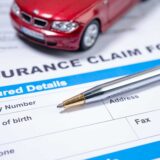What is the Law for Texting and Driving in Georgia?
Texting or using the phone is one of the most blatantly negligent acts motorists can commit while driving. It makes them lose their focus, take their eyes off the road, and greatly increases their risk of death, injury, or property damage. Even worse, drivers who text place others at risk for the same grim consequences.
Thus, Georgia has enacted strict laws against texting and driving. Georgia is now considered a “hands free” state.
In 2010, a law went into effect in Georgia where texting (writing, sending, or reading a text-based communication) while driving was banned. See O.C.G.A. 40-6-241.2. (A full copy of this law is below.) Another law (HB673), adopted in 2018, made it illegal for the driver of any vehicle to holding or supporting a wireless or stand-alone electronic device.
As a result of these laws, distracted driving deaths and injuries saw a noticeable decline. But it was clear that further action was still necessary to reduce deaths, injuries, and harm from distracted driving.
The CDC has mentioned that distracted driving kills 10 people each day and harms thousands in the US.
Drivers face greater risks today due to the advent of new technology. The State of Georgia must keep up with evolving technologies to mitigate new threats.
As a result, Georgia enacted hands-free rules to mitigate the threat of hands-free devices.
New Law for Distracted Driving in Georgia
Under the new law, all drivers are required to refrain from any activity that will distract them while driving. The new law is more comprehensive since it encompasses anything that can lead to distractions while driving.
So, it is not just texting that is prohibited while driving; anything else that can interfere with your focus while driving, such as applying makeup or eating food, is prohibited.
Under these rules, Georgia residents are not allowed to hold or physically support any device while driving. However, wrist-worn devices, earpieces, and headphones are exceptions to this rule. Therefore, if you are talking hands-free or using a Bluetooth enabled device, you are more likely than not on the safe side of the law. However, you are not allowed to hold the phone itself in any way. Doing so is illegal and unnecessarily exposes others to harm.
For clarity, Georgia law does all you to use voice-to-text technology and GPS for navigating. But you cannot send, write, or read internet data, emails, text messages or instant messages in any way.
Also, you cannot watch any video while driving. You can neither broadcast nor record a video using any device. However, dashcam devices are permitted. The personal injury attorneys at The Jewkes Firm recommend that drivers equip their vehicles with dash cam recorders for safety purposes and to record who may be at-fault in the event of a car collision.
There are also limitations on interactions permitted during hands-free or Bluetooth based communication. For initiating or answering a call, you may not press more than once, nor should you turn around from your seat to answer the phone on the back seat, for instance.
Anyone violating these rules may incur fines. Violators may be fined up to $150 for their first offense.
Under certain extraordinary circumstances, these rules may not be applied. These circumstances include the following scenarios:
- Reporting unsafe driving, hazardous road conditions, reporting traffic accidents or using the phone in an emergency.
- A utility contractor or employee on duty, answering the phone for utility emergencies.
- First responders and law enforcement officers carrying out their duties.
- Using devices while the vehicle is legally parked.
Conclusion
Were you the victim of distracted driving? You should immediately contact a personal injury attorney in Georgia for compensation.
Your personal injury attorney will fight diligently and stand boldly for your rights.
The attorney will strive to recover economic damages, including medical bills, lost wages, damages due to lost earning potential, and much more. You could recover money for emotional trauma, physical pain, and distress. If possible, the attorney will also endeavor to recover punitive damages for gross acts of negligence by the at-fault driver. You could be entitled to a much larger settlement amount than you think.
The only way to know is by having a proven lawyer on your side who has a brilliant track record of recovering millions in personal injury claims for victims.
Harmed by a distracted driver?
Contact one of the car accident attorneys at The Jewkes Firm today.
For reference, below is the 2010 code that penalizes driving while texting:
O.C.G.A. 40-6-241.2 (2010)
40-6-241.2. Writing, sending, or reading text based communication while operating motor vehicle prohibited; exceptions; penalties for violation
(a) As used in the Code section, the term “wireless telecommunications device” means a cellular telephone, a text messaging device, a personal digital assistant, a stand alone computer, or any other substantially similar wireless device that is used to initiate or receive a wireless communication with another person. It does not include citizens band radios, citizens band radio hybrids, commercial two-way radio communication devices, subscription based emergency communications, in-vehicle security, navigation devices, and remote diagnostics systems, or amateur or ham radio devices.
(b) No person who is 18 years of age or older or who has a Class C license shall operate a motor vehicle on any public road or highway of this state while using a wireless telecommunications device to write, send, or read any text based communication, including but not limited to a text message, instant message, e-mail, or Internet data.
(c) The provisions of this Code section shall not apply to:
(1) A person reporting a traffic accident, medical emergency, fire, serious road hazard, or a situation in which the person reasonably believes a person’s health or safety is in immediate jeopardy;
(2) A person reporting the perpetration or potential perpetration of a crime;
(3) A public utility employee or contractor acting within the scope of his or her employment when responding to a public utility emergency;
(4) A law enforcement officer, firefighter, emergency medical services personnel, ambulance driver, or other similarly employed public safety first responder during the performance of his or her official duties; or
(5) A person engaging in wireless communication while in a motor vehicle which is lawfully parked.
(d) Any conviction for a violation of the provisions of this Code section shall be a misdemeanor punishable by a fine of $150.00. The provisions of Chapter 11 of Title 17 and any other provision of law to the contrary notwithstanding, the costs of such prosecution shall not be taxed nor shall any additional penalty, fee, or surcharge to a fine for such offense be assessed against a person for conviction thereof. The court imposing such fine shall forward a record of the disposition to the Department of Driver Services. Any violation of this Code section shall constitute a separate offense.




